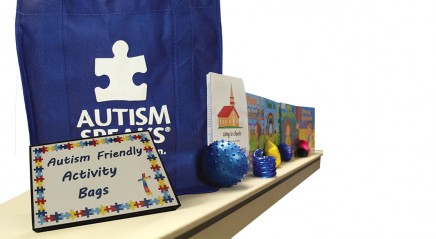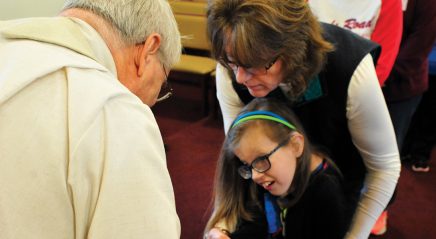Author’s note: This article uses identity-first language, the preference of most autistic adults.
Sometimes parents resist the news that their child is, or may be, autistic. They wonder why we need to label children so young. What good could possibly come of it?
As an autistic adult who was diagnosed at age 22, I wish my diagnosis had come much earlier because so much good has come of it. Quite simply, getting diagnosed is one of the best things that has ever happened to me.
The truth about labels is that they don’t come only in the form of diagnoses. You can’t protect an autistic child from labels by refusing to get them evaluated or by refusing to accept that diagnosis if it comes. An autistic child who struggles with executive function will be labeled lazy. An autistic child who struggles with transitions will be labeled disruptive. An autistic child who struggles to take turns in conversation will be labeled self-absorbed.
In my experience, being able to respond to those labels by saying “No, I’m autistic. I’m trying my best, but some things are harder for me than for most people” is much more empowering than concluding, “I guess I am lazy, disruptive and self-absorbed, and it’s all my fault.”
In addition to giving me the power to reject demeaning labels that blame me for my struggles, my autism diagnosis has helped me figure out what I need and how to get it. When I’m bored and restless in a Zoom meeting, I recognize that I need more sensory input than I’m getting, and I start to knit. When I’m upset and want to destroy things, I recognize that I have excess negative energy, and I find a bare patch of wall to pelt with balled-up socks.
I love being autistic. Having a special interest brings me deep happiness. Properly calibrating my sensory input feels amazing. I enjoy having a logical bent to my thinking.
When I can’t choke down food that causes me sensory distress, I can explain that the food is triggering my sensory sensitivities. When I forget to ask questions in a social situation, I can forgive myself and also explain to my friends that I’m unlikely to ask for their input but they’re welcome to spontaneously share information with me if they want me to know it.
This isn’t to say nothing bad can ever come from an early diagnosis. If an early diagnosis leads parents to put their child in applied behavioral analysis (ABA) therapy, which is linked to post-traumatic stress disorder, that can be bad. If an early diagnosis leads parents or teachers to believe that a child will never be able to learn or do anything worthwhile, that can be bad. But these aren’t necessary consequences of an early diagnosis—these are reactions to the diagnosis, and they can be changed or avoided.
I love being autistic. Having a special interest brings me deep happiness. Properly calibrating my sensory input feels amazing. I enjoy having a logical bent to my thinking.
This isn’t to say I didn’t cry the first time I contemplated getting evaluated for a diagnosis. I was afraid of what others would think of me. It has turned out that I vastly prefer people knowing I’m autistic to their interacting with me and drawing their own conclusions: that I am weird, self-absorbed, tactless.
After all, the diagnosis didn’t make me autistic. That was already a part of me. My diagnosis just helped me explain why I am the way I am.
How congregations can help
Here are ways churches can become more accessible and affirming for their autistic members:
- Make services more sensory-friendly or offer a sensory-friendly service. Make such adjustments as dimming lights, turning microphones down and asking people not to sing loudly. If you have members with low vision or hearing loss, you might need to find creative ways to balance their needs with your autistic members’ sensory needs.
- Ensure that touch is always optional and consensual. This is important for a lot of reasons, many of which have nothing to do with autism, but it’s important to remember that touch is a sense and being touched can cause autistic people sensory distress. Reshape the passing of the peace. Set norms around hugs and other physical expressions of affection, and adjust games played in Sunday school and youth group.
- Learn more about autism and other disabilities. You may be sending hurtful messages without realizing it, as my pastor did when shaping a sermon around the importance of eye contact, something that is difficult for many autistic people. When we know better, we have a shot at doing better. The Autistic Self Advocacy Network can provide information.
- Remember that autism and other disabilities don’t affect just children. Often discussions about intellectual and developmental disabilities use “children with special needs” as a synonym for “people with disabilities” when there are many disabled adults as well—including, most likely, in your congregation. Disabled adults may be able to help figure out how best to accommodate disabled people of all ages in the congregation.








